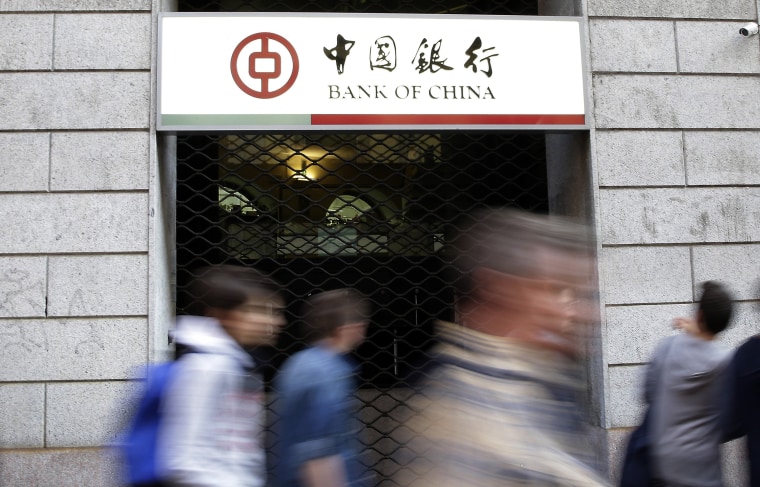FLORENCE, Italy — As Italy's economy was heading off a cliff, police couldn't help but notice that the country's Chinese communities were booming. Luxury cars rolled past Chinese betting parlors and garment factories. Chinese immigrants were buying up Italian coffee bars and real estate. Their prosperity, however, was not reflected in local tax records.
"What do they do with the money?" said Pietro Suchan, then deputy public prosecutor in Florence. "Do they eat it?"
The answer, after a four-year investigation by Italy's financial police, was no. They discovered that more than 4.5 billion euros ($4.9 billion) — the proceeds of counterfeiting, prostitution, labor exploitation and tax evasion — had been smuggled out of Italy to China in less than four years using a money-transfer service. Nearly half that money was funneled through one of China's largest state banks, the Bank of China, which earned more than 758,000 euros in commissions on the transfers, according to Italian investigative documents obtained by The Associated Press.

Beijing, which is seeking Western help in hunting its own economic fugitives, did not cooperate with the investigation, Italian officials said.
Once the money left Italy, it vanished behind China's great legal firewall.
Despite the deep economic ties between China and the West, inconsistent cooperation, incompatible legal systems and China's secrecy laws have allowed criminals to globalize more effectively than law enforcement — and made it harder for Western companies and courts to put them out of business.
"We did not have the possibility, despite many attempts made, to have an official contact with the judicial authorities and police of China," said Suchan, who oversaw the investigation. "We have discovered 50 percent of the truth."
China's foreign ministry said in a faxed statement that Chinese authorities knew nothing of the Italian case. "China is always committed to deepening law enforcement cooperation with other countries, jointly cracking down on transnational crimes and punishing criminals," the ministry wrote.
The AP has traced some of Italy's missing money to an import-export company owned by the Chinese government. The company, Wenzhou Cereals Oils and Foodstuffs Foreign Trade Corporation, has been accused of repeatedly shipping counterfeit goods, some to the United States. But it has also taken shelter behind the firewall, refusing to respond to a U.S. lawsuit brought by Converse Inc., which says the Wenzhou company sent tens of thousands of fake sneakers to the U.S. and Croatia.
Cai Jiliu, Wenzhou Foreign Trade's general manager, declined to comment on the Italian case, saying he didn't work at the company then. He said the fake Converse exports were the result of "management negligence."